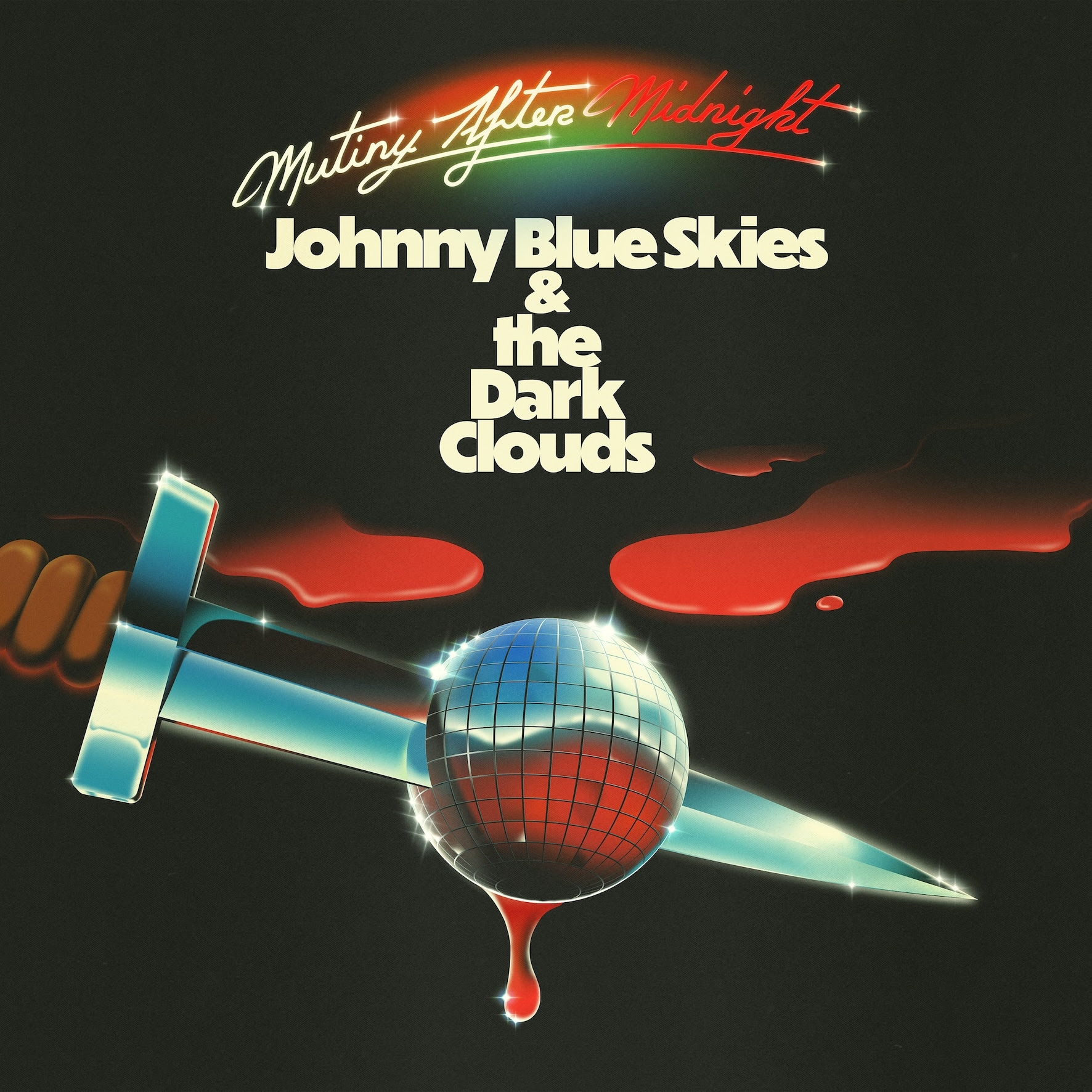Back in 2008, the year that Spoon headlined the last day of the Pitchfork Music Festival, they got into town early. When bands are playing summer festivals, they almost never get into town early. Every weekend, after all, brings three possible festival paydays. But Spoon had business in Chicago. Britt Daniel wanted to get to the Pitchfork Festival early because he wanted to see the group who headlined Friday night: Public Enemy, there to do their 1988 classic, It Takes A Nation Of Millions To Hold Us Back, in full. And on Saturday night, Daniel -- and, if I'm remembering right, the rest of the band -- skipped Pitchfork, but they still went out to see some live music in Chicago. They went to see Tom Petty play the United Center. So: two nights, two longtime favorites. And listening to the new Spoon album, Hot Thoughts, that weekend suddenly takes on a weird significance. Spoon are, after all, an American rarity: an indie rock band who probably learned more from Public Enemy and Tom Petty than they did from any other indie rock band.
The Public Enemy connection is admittedly slightly oblique. Spoon, after all, do not rap. They do not engage in political grandstanding. They do not traffic in sonic chaos, in breakbeats and sirens and bass-blurts. They are a rock band, and they are icy and controlled and clinical. But Spoon, just as much as Public Enemy, are about creating their own sonic environment, about tweaking existing structures until they can make their music do what they want it to. The first time I heard Spoon's 2001 album Girls Can Tell, my introduction to the band, was a minor revelation. I didn't know you could do things like that, that you could strip away all possible excess from an indie rock song, letting guitars and drums disappear at will and trusting the melody to carry the day. For their entire career, Spoon have kept that same spartan aesthetic, forcing instrumentation to fit their songs rather than vice versa. Just like Chuck D and the Bomb Squad, they learned how to use the studio as an instrument.
The Tom Petty connection is a whole lot more obvious: There are a million Tom Petty albums, and all of them are good. And for the past two decades, Spoon have been almost inarguably the most consistent band working in the indie rock universe. They've been so consistent, really, that it's hurt them; the collective shrug that greeted 2010's pretty-great Transference is all the evidence you need. Now: All Tom Petty albums are not created equal, and neither are all Spoon albums. In Spoon's catalog, the 2002 breakthrough Kill The Moonlight serves the same basic function that Damn The Torpedoes did for Petty. And 2007's Ga Ga Ga Ga Ga is Spoon's version of Full Moon Fever: It's the album with all the hits. Hot Thoughts, by contrast, is more of a Wildflowers. It has its own sonic character, and it has jams that will endure, but it's a little easier to imagine it being lost in the larger context of the band's career. It would be a shame if it got lost, though. It's a good fucking album.
Spoon recorded half of their last album, 2014's They Want My Soul, with Dave Fridmann, the upstate New York psych-rock mastermind who helped turn the Flaming Lips and Mercury Rev into avatars of starry-eyed heartbreak somewhere around the turn of the millennium. This time around, they made the whole album with him. For a band with a strong, defined sound, this could be a problem. Fridmann has a way of squelching up everything he touches, melting hard edges into fluorescent goo. I have a long-running grudge against the guy because he absolutely broke Sleater-Kinney's sound into pieces with his production of The Woods; I've honestly never forgiven him. (I know I'm in the minority on that one, but that's how I feel.) But Spoon have such a spare and precise aesthetic that Fridmann can't really do anything to them. They can go through his prism and still come out sounding like Spoon. That's a great thing.
Spoon songs, as ever, are made of tiny and perfect little discrete sounds, sounds that always show up at the exact right moment and then disappear right when they should. On "Hot Thoughts," there are some tingling bells buried in the mix, and they sound like the Bob James sample that Run-D.M.C. used on "Peter Piper." On "First Caress," there's a cascading piano run that comes in right after the chorus and then vanishes just as quickly as it appears. "I Ain't The One" is built entirely on a processed-to-hell organ playing a bluesy figure that evolves over time but never stops playing in the background. Fridmann's influence is evident; there's a bit more distortion than usual on Daniel's voice, and there are a few more strings and sustained synth sounds. But Fridmann never takes over. He just adds more colors that Spoon can play with. Their songs are a little busier this time, but they're never cluttered.
They're also a little funkier this time. Other writers have pointed out that Hot Thoughts is lighter on guitars than past Spoon records -- something that's true, even if it didn't actually occur to me. (I never think of Spoon records as being guitar-heavy because Spoon don't use guitars the way other bands do. They're always just one more element in the mix, never the focus.) This time around, there are more synths and fewer acoustic instruments. There are some straight-up dance beats. There are shoulder-shimmy tunes like "First Caress" and "Do I Have To Talk You Into It" -- songs that are funky in the same stiff, hopelessly white way that certain David Bowie songs are funky. There are a few songs here that could actually be used for dancing. "Can I Sit Next To You" is the first Spoon song that I can imagine featuring a rap verse, though I'm glad it doesn't have one. "Hot Thoughts" is essentially an extended come-on -- "Could be your accent mixing with mine / You got me uptight, twisting inside" -- like the Conan O'Brien "rrrraow" noise transformed into a Spoon song.
Spoon have never been a remotely introverted band, but this might be their most extroverted album, the closest they'll ever come to an international-playboy concept album. Lyrically, it's as opaque and digressive as all their records. There are memorable lines -- "Get the stars out your eyes / Come and bring them to me"; "Coconut milk, coconut water / You still like to tell me they’re the same / And who am I to say?" -- but they don't really tell us who the people in Spoon are. Your mind stays busy listening to it, but the engagement, as ever, is almost entirely musical. And it's absolutely remarkable that, nine albums deep into their career, Spoon are still capable of something like this. Hot Thoughts isn't Spoon's best album, but the distance between their best album (Kill The Moonlight, sez me) and this one is not huge. They still sound like themselves, and yet they continue to make albums that don't sound much like their other albums. They keep changing, and yet they remain the same. They're a truly remarkable beast. Apparently, the rest of us need to listen to more Public Enemy and Tom Petty. It's good for you.
Hot Thoughts is out 3/17 on Matador.
[videoembed size="full_width" alignment="center"][/videoembed]
[videoembed size="full_width" alignment="center"][/videoembed]






